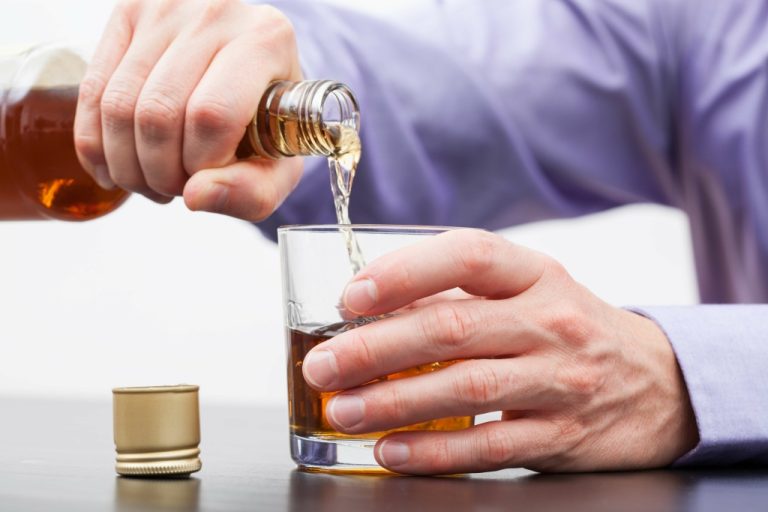This is the same scenario with foods cooked with alcohol, even a small amount could trigger cravings, setting them up for failure. Even if those studies turn out to be false, I’ll still take cheat days. I’ve gotten away with them easily, despite weighing over 250 pounds before I quit drinking. My goal is to live life fully, not to feel deprived and have a 6-pack at all times. Because I have fully reframed alcohol as a poison, I no longer obsess over the existence of trace amounts of alcohol (or alcoholic flavors) in gourmet dishes.
- With extensive experience in the field of addiction treatment, Francisco is dedicated to helping individuals access the resources they need for successful recovery.
- It rather depends on how you’re using the wine—as you might imagine, the longer you cook a dish with wine in it, the more the alcohol will burn off.
- Another factor to consider is the person’s personal triggers and relationship with alcohol.
- By exploring non-alcoholic alternatives, we can savor the joys of cooking and dining together while respecting and supporting each other’s individual paths.
- I myself avoided such foods until I was about one year alcohol-free, at which point I had already begun to regard alcohol as a worthless toxin rather than a forbidden fruit.
While I am passionate about wine and its culinary uses, I also understand the challenges that come with addiction. It’s essential to prioritize the well-being of individuals who are in recovery and to take their concerns seriously. Though simmering a pot roast at 185° for 2 ½ hours removed 95% of the red wine added, 25 minutes of baking at 375° F retained 45% of the dry sherry in scalloped oysters. Because brandy alexander pie involves no cooking, the researchers were hardly surprised to find that 75% of its alcohol ended up on the dessert plate.
Though you can technically drink cooking wine if you’re an adult, it’s not intended to be used as a beverage, according to the University of Washington. Cooking wine is alcoholic, so it (or any wine, for that matter) is not good for kids who are under the legal drinking age. That is, if you — or children — consume cooking wine, you can get intoxicated. Perhaps you’re struggling to find alternatives to the alcohol recommended within certain recipes. In this case, you can take it as a good opportunity to expand your cooking skills and learn new techniques and ingredients you can incorporate into your cooking to avoid using any alcohol.
With a variety of treatment programs, we can help you find what works best for your needs. Mixing alcoholic recovery and food difference between molly and ectasy cooked with alcohol is not a good idea. Some people may be fine with it, but most will end up putting their sobriety at risk.
Each person will have their own triggers and their own vulnerability levels to determine when it comes to a potential relapse. Alcohol relapse triggers can be caused by exposure to small amounts of alcohol, exposure to alcohol-related cues or environmental contexts and stress. Francisco Church is a rehabilitation specialist and the chief editor of Recovery Ranger. He creates this site to offer guidance and support to individuals seeking to overcome addiction and achieve lasting sobriety.
Which end of avocado pit goes in water?
These wines may have a slightly different flavor than regular wines, but they can still be used to add flavor to dishes. Alcohol also dissolves and carries the flavors of other ingredients, and its acids help tenderize meat and poultry. Alcohol’s boiling point is lower than that of water, and many cooks assume that little or none of its potency remains after cooking. I’m a recovering alcoholic, and I like to cook with wine, but can’t and won’t taste-test the wines I purchase. The good news is that you don’t have to forsake trying new and delicious recipes that would have you cook with alcohol in recovery. As someone who has seen the impact of alcoholism on friends and family, I believe it’s crucial to approach this topic with sensitivity and awareness.
Can an Alcoholic Cook with Alcohol?
It is crucial to assess the individual’s specific circumstances and seek guidance from healthcare professionals if necessary. There are several alternative ingredients that can be used in place of wine for cooking, such as chicken or vegetable broth, grape juice, apple cider vinegar, or non-alcoholic wine. The amount of alcohol remaining in food cooked with wine varies depending on the cooking method and duration. It is generally believed that the alcohol content is significantly reduced during the cooking process, but it is important to consider the individual’s sensitivity to alcohol.
With a love for all types of cuisine, from classic comfort food to exotic international dishes, I’m always looking to expand my culinary horizons. Through this blog, I share my tips and inspiration for cooking delicious meals and exploring new flavors. Recipes frequently call for flavoring dishes with wine or other alcoholic spirits — often as a replacement for heavy creams and starches in “nouvelle” or light cuisine. Don’t worry about inebriating your dinner guests or adding “empty” calories, cooks are told; virtually all of the alcohol volatilizes during food preparation.
Non-alcoholic beer and fruit juices can also be used in certain dishes. It is typically fermented with yeast and water, and it can range in color from white to red. Wine is https://rehabliving.net/ often used in cooking and is a key ingredient in many sauces and marinades. It is also used as a flavoring in some desserts and as an accompaniment to a variety of dishes.
Can dogs eat cooked tomato?
Too many people focus solely on psychological healing, only to be brought down later by biochemical imbalances caused by alcohol that can linger for months or years. Along with supplementation, designing your ideal diet is a major pillar of physical recovery from alcohol addiction. The heat is much higher and food often simmers without a lid, which means that wines and liquor don’t boil down and reduce in a slow cooker. Instead, wines and liquor may have a strong flavor that is far from appetizing. It depends on the individual’s specific circumstances and recovery journey.
Is it okay to cook with wine when serving a guest in AA recovery?
If it is being used for flavor, choose a substitute that offers a similar taste, while if you need it to tenderize meat or vegetables, choose soda, vinegar, or an acidic fruit juice. And if you need the alcohol for its yeast content, it may be better to try another recipe since there aren’t great substitutes for that purpose. For example, if the recipe calls for brandy, you can use apple juice, white grape juice, or apple cider. For recipes that require red wine, use beef broth or even unsweetened cranberry juice. Some people can consume food with alcohol without experiencing that triggering, especially if they don’t know it’s present, but many of them do end up struggling with their sobriety.
In this article, I will discuss my three biggest tips for eating during alcohol recovery. The most effective way of reducing the amount of alcohol is by evaporation during cooking. Despite common misconception, flaming results in much smaller amounts of alcohol burn-off. Both experts stress that while the flambé technique makes for a visually impressive bananas Foster, it’s not very good at “burning off” alcohol. One study found that igniting a vodka-spiked caramel sauce made no difference in the amount of alcohol lost (less than 15 percent).
If you love to cook but are trying to stay sober, you shouldn’t use alcohol at all during cooking or baking. If you choose a recipe that contains alcohol, find ways of substituting it so that you don’t have it in the house. Besides your cooking method, there are some other tips that may help you remove alcohol from your meals.

